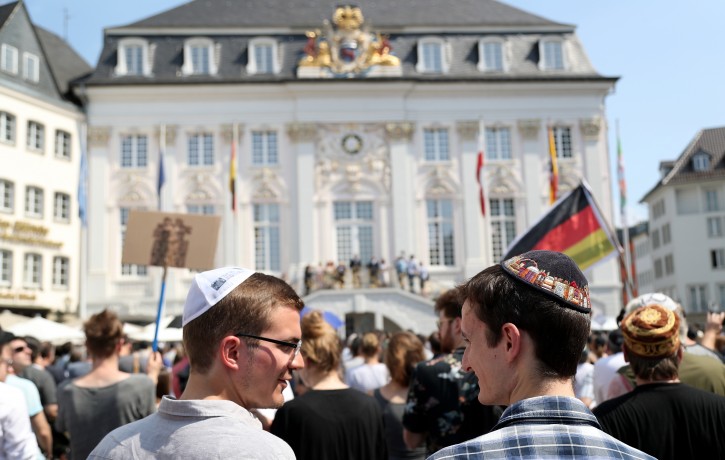Berlin – Germans Rally In Kippahs To Protest Anti-Semitic Attack
Berlin – Hundreds of Germans wearing skullcaps rallied in the western city of Bonn on Thursday in support of a Jewish professor who was first the victim of an anti-Semitic attack and then was hit again by police who mistook him for the assailant.
Yitzhak Melamed, a philosophy professor at Johns Hopkins University in Baltimore, was visiting to give a guest lecture at Bonn University when he was attacked by a 20-year-old Palestinian-German man who shouted: “No Jews in Germany”.
The protest rally was backed by Bonn’s local government and other civic groups. They called for people to wear the kippah, or Jewish skullcap, in solidarity with Melamed who had been wearing the symbol of Jewish identity when attacked.
On his Facebook page, Melamed said: “My glasses were broken. My watch torn, and then after another five or 10 minutes they realized they made an error.” An officer had later told him “not to get in trouble with the German police”, he said.
“I told the policeman sardonically, ‘I am no longer afraid of the German police. The German police murdered my grandfather. They murdered my grandmother. They murdered my uncle, and they murdered my aunt. All in one day in September 1942,” he added, making a reference to the Holocaust.
The attacker was arrested and admitted to a psychiatric clinic after a blood test showed possible drug exposure, the police said.
Anti-Semitism remains especially sensitive in Germany, where the Nazis murdered more than six million Jews. A series of anti-Semitic attacks in recent months have raised fears that younger generations and immigrants have not learned the lessons of the past.
“(I am here) to set a signal, because if people wearing the kippah in public are being beaten up here, then it concerns all of us,” said Andre Zoebisch, a participant in the Bonn demonstration.
